Ben Hogan Ft. Worth Irons Course-Tested Review
We tested Ben Hogan's latest players cavity back irons
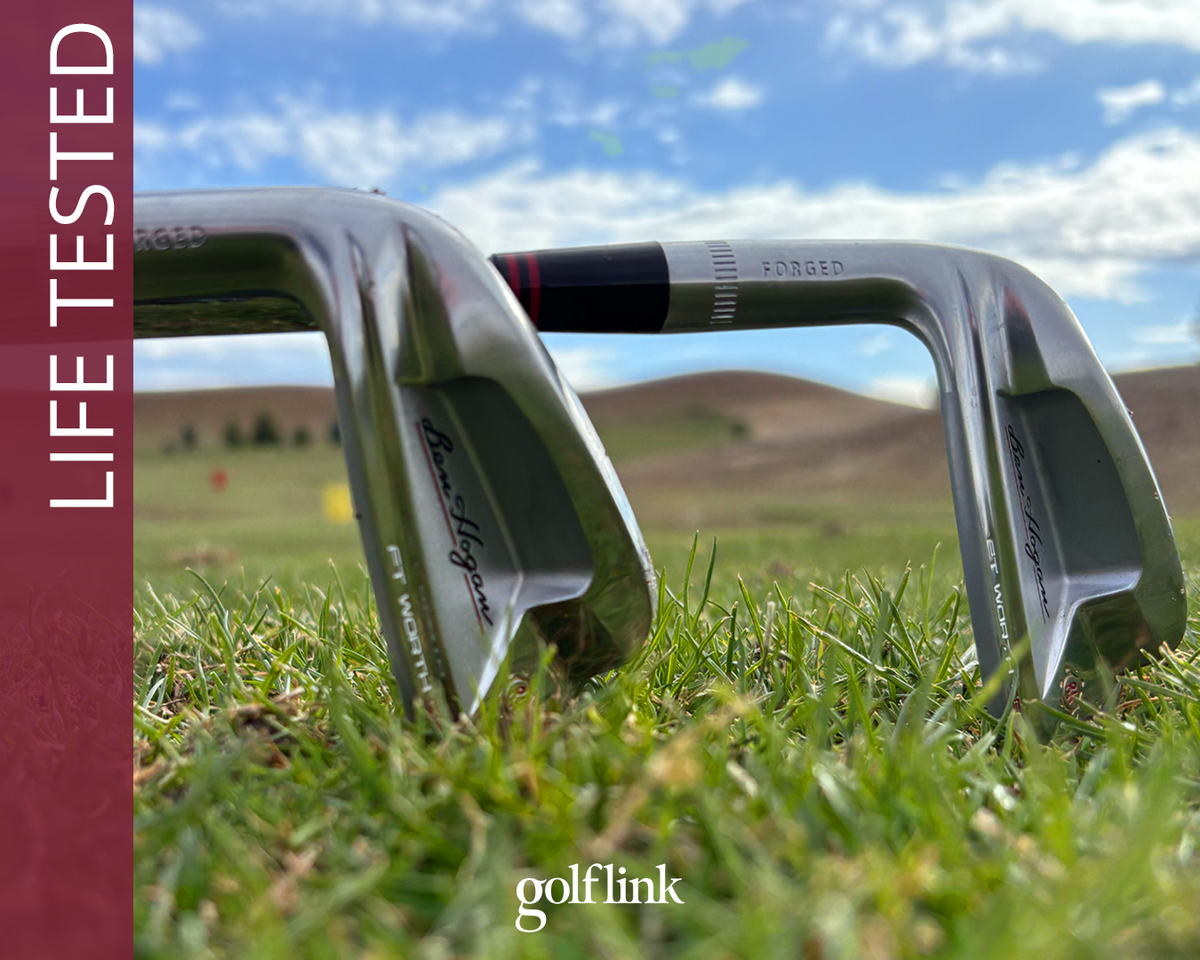
If you like classic looks with modern technology in your irons, check out the Ben Hogan Golf Company. Ben Hogan has been perfecting that blend since its inception, and the new Ft. Worth irons are another prime example.
I’ve been testing these players cavity back irons for weeks – both on the course and on a simulator – to see exactly how they perform, and what type of player should check them out. Here’s our complete course-tested review.
Ben Hogan Ft. Worth Irons Overview
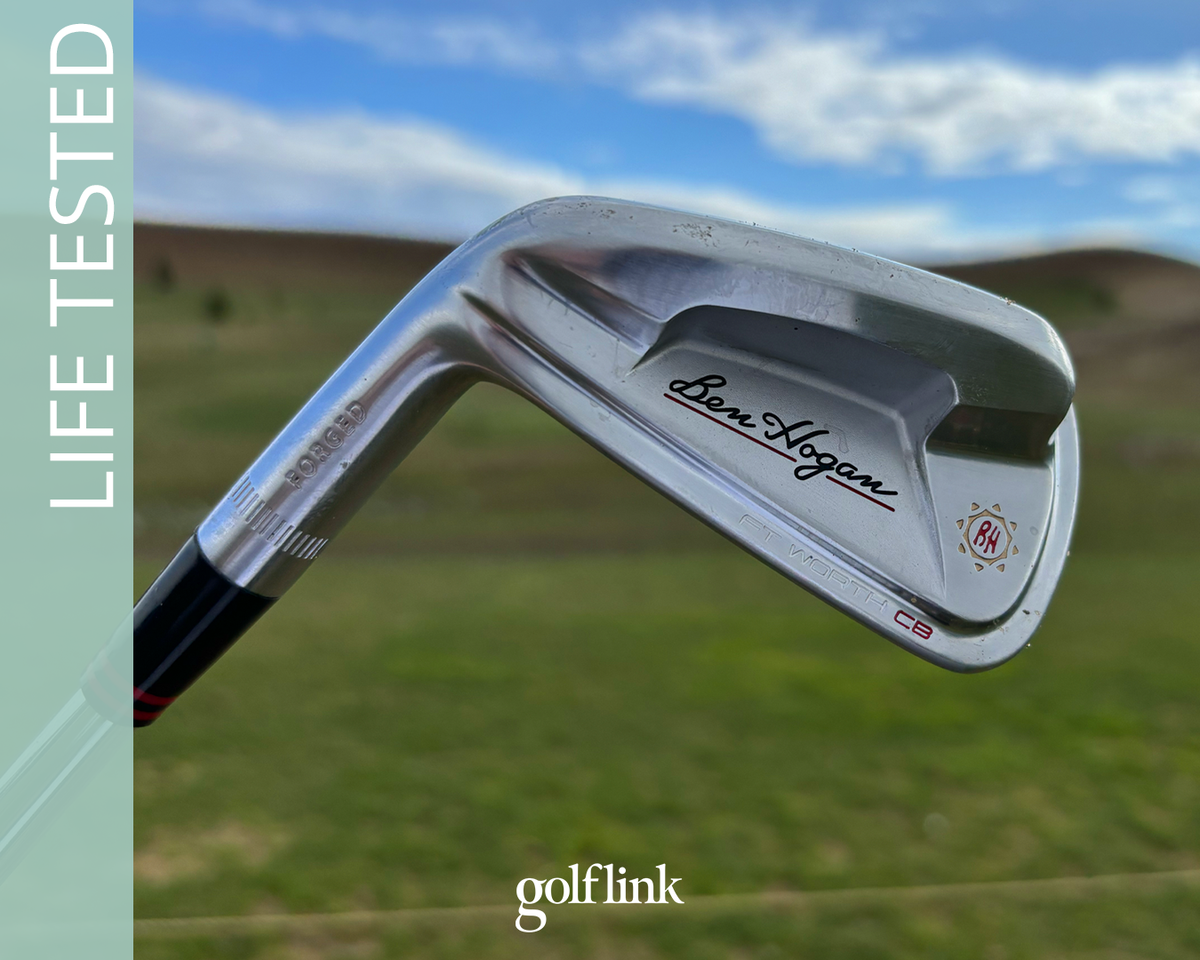
FIND AT BEN HOGAN
Price: $899 (5-PW) / $999 (4-PW)
Lofts: Traditional (7: 34° / PW: 46°)
Profile: Forged Players CB
Pros:
- Striking aesthetics that appeal to better players (minimal offset, thin top line, compact footprint)
- Higher launch and descent angles and ample spin make for excellent control and green-holding power
- Premium feel at impact
- Variety of customization options, including shafts, length, lie and loft adjustments
- V-Sole design for forgiveness through the turf, plus Ceramic Matrix Core for forgiveness across the face
- Strong value
Cons:
- Traditional loft structure may not be ideal for players who launch the ball high with modern lofts
- Bulky cavity – although invisible at address – may not appeal to some players
The Ben Hogan Ft. Worth irons are undoubtedly made for good ball-strikers. If the traditional loft structure didn’t give it away, the sleek profile, thin topline, and minimal offset left no doubt.
The thick cavity provides muscle behind the sweet spot, the lofts offer the precision and stopping power better players seek, and a couple of key technologies make room for just the right amount of forgiveness.
Customization Options
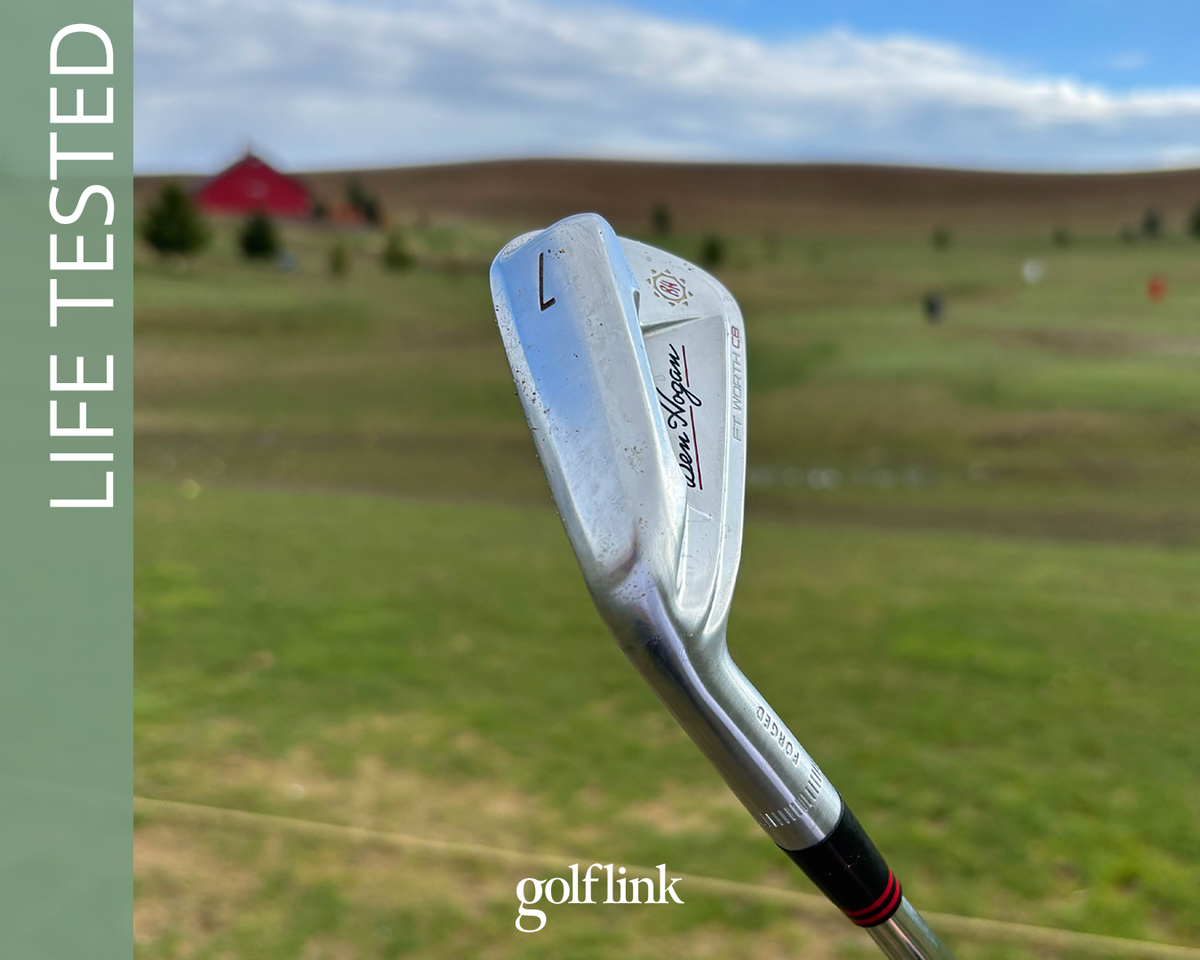
The modern Ben Hogan Golf Company may take advantage of the direct-to-consumer model, but that doesn’t mean you’re stuck with stock builds.
Au contraire.
In my opinion, one of the most attractive elements of this, and any, Ben Hogan set is the wealth of options you have to tailor any set to your exact specs.
I especially like this for better players clubs like this Ft. Worth set. Players in this category are more likely to have (or at least be sensitive to) specific launch and spin needs that can be fine-tuned with shaft selection or loft adjustment.
They’re more likely to know the appropriate length and lie adjustments that complement their swing.
They’re more likely to have a grip preference, and more likely to have specific distance gaps their irons need to fill to complement the transitions to the hybrids and woods, and wedges.
All of those can be customized on a set of the Ben Hogan Ft. Worth irons, meaning any player who knows their specs can dial in the perfect set.
Ben Hogan Ft. Worth Iron Performance
As expected, the Ben Hogan Ft. Worth Irons produce:
- High launch
- High spin
- Steep descent angle
The lofts on the Ft. Worth irons are about three degrees weaker than my gamers, the MacGregor MT Milled irons. Even with my normal setup, I launch the ball at the top end of the optimal window, and I could probably gain a few yards if I brought my launch down a degree or two.
As expected, the Ft. Worth irons launched higher, peaked higher, spun more, landed steeper, and stopped quicker than my gamers.
This shouldn’t be a surprise when you compare the specs of the two sets. The MT Milled irons are more of a players distance iron, while the Ft. Worth irons are for players who aren't looking for a shot of distance in their irons.
The Ft. Worth irons offer superior green-holding power – I often saw 1000 RPMs of spin per iron (around 7000 on a 7-iron, etc.), and descent angles around 50 degrees with the Ft. Worth irons, both of which are about 5-10% greater than what I would expect with my gamers.
That in itself doesn’t make the Ft. Worth irons better or worse than another iron, it simply makes them better for certain types of players.
Players who launch a 34-degree 7-iron in the optimal window and want maximum control can have a heyday with the Ft. Worth irons. If you like to control the spin with your irons on certain shots, the Ft. Worth irons offer a wider spectrum to choose from compared to a stronger-lofted iron with a lower spin ceiling.
My swing dynamics, which create a higher launch, don’t jive with the profile of the Ft. Worth irons. I launched them too high, which cost me some distance, which ultimately caused gapping issues as the set transitioned to my utility iron and woods.
Forgiveness
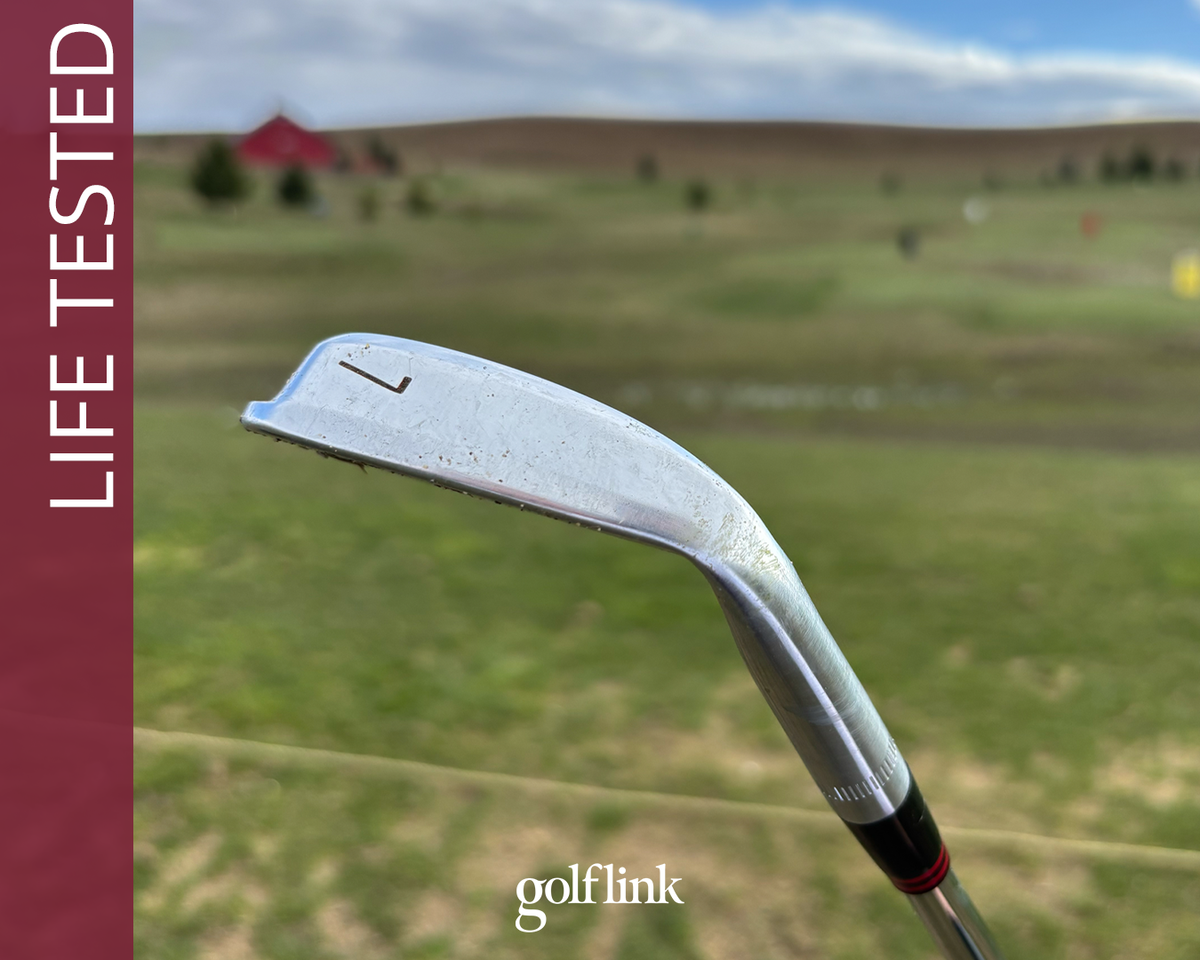
The V-Sole on the Ben Hogan Ft. Worth irons creates more bounce on the leading edge for better turf interaction
The Ben Hogan Ft. Worth irons boast extra forgiveness. After testing the Ft. Worth irons, I would add the caveat that extra forgiveness is relative.
The Ft. Worth irons are forgiving for better players, but not necessarily forgiving for everybody.
In my testing, distances with the Ft. Worth irons were reasonably consistent from center strikes to minor toe and heel infractions.
The difference between a well-struck 7-iron and a slight toe miss was around eight yards. With a pitching wedge, it was around 4-5 yards. If your target is somewhere near the middle of the green, those misses should still safely find the green. That’s a good consolation for a mis-hit in my book.
However, don’t expect extravagant forgiveness on bigger misses – those farther from the center, chunks, and thins – from the Ft. Worth irons.
The V-Sole found on Ben Hogan irons is not exclusive to the Ft. Worth set, but it certainly helps turf interaction by increasing the bounce on the leading edge to prevent digging, which is particularly helpful out of rough.
Hogan also baked (co-forged, actually) a Ceramic Matrix Core behind the face of each iron, which helps optimize launch for each individual iron, and allows more weight to be spread to the perimeter. That, of course, results in more consistency across the face.
Ben Hogan Ft. Worth Irons Profile
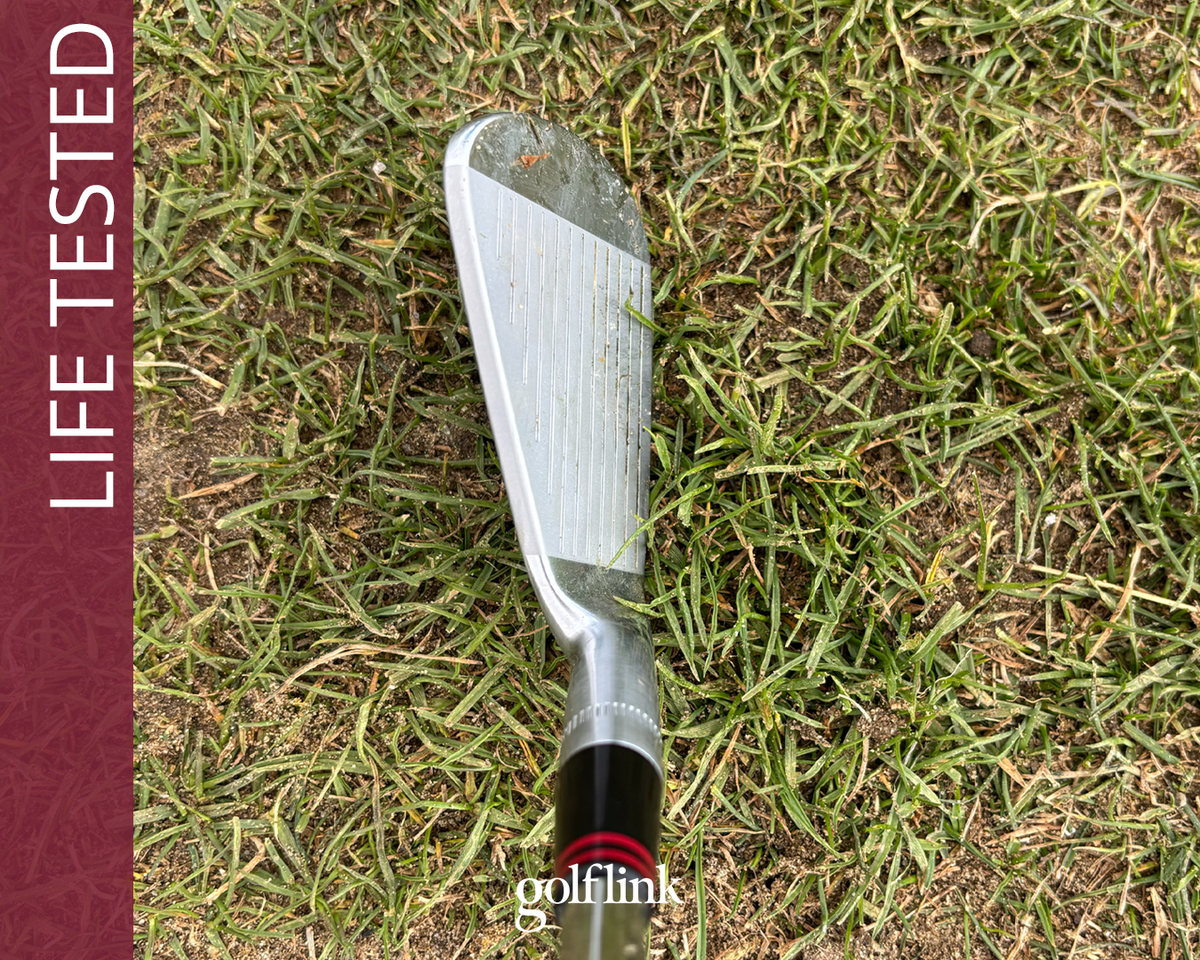
Ben Hogan Ft. Worth irons from the address position
The Ben Hogan Ft. Worth irons are exactly what you would want from a players iron.
The design is quintessential Ben Hogan Golf, which is known for its timeless look.
The topline is thin, the offset is barely there, and the footprint is compact.
The feeling at impact is more of a crisp connection than a buttery soft strike, and it’s incredibly addictive. If I didn’t have a family, a job, and a lower back to worry about, I could hit these irons for hours at a time and never get bored.
Even as a player whose game isn’t quite ready for this caliber of iron, I really like the sleek profile of the Ft. Worth irons. The small head made me feel like any strike is going to catch at least a chunk of the sweet spot, because there isn’t a whole lot of room on the heel or toe to miss the sweet spot completely.
Speaking of those looks, the cavity on the Ft. Worth irons is pretty big. That’s a lot of muscle behind the face. While it’s not noticeable at address, I know some players favor a more subtle profile.
Calling All Players
The Ben Hogan Ft. Worth irons aren’t for everybody, but they are excellent weapons for the players who they do fit.
Roughly 30% of golfers who keep a handicap are single-digit players, and that’s the group of players who I think should seriously check out the Ft. Worth irons.
Players with good control over their ball-striking who want a set of players irons tailored to their game can do some real damage with these Ft. Worth irons.